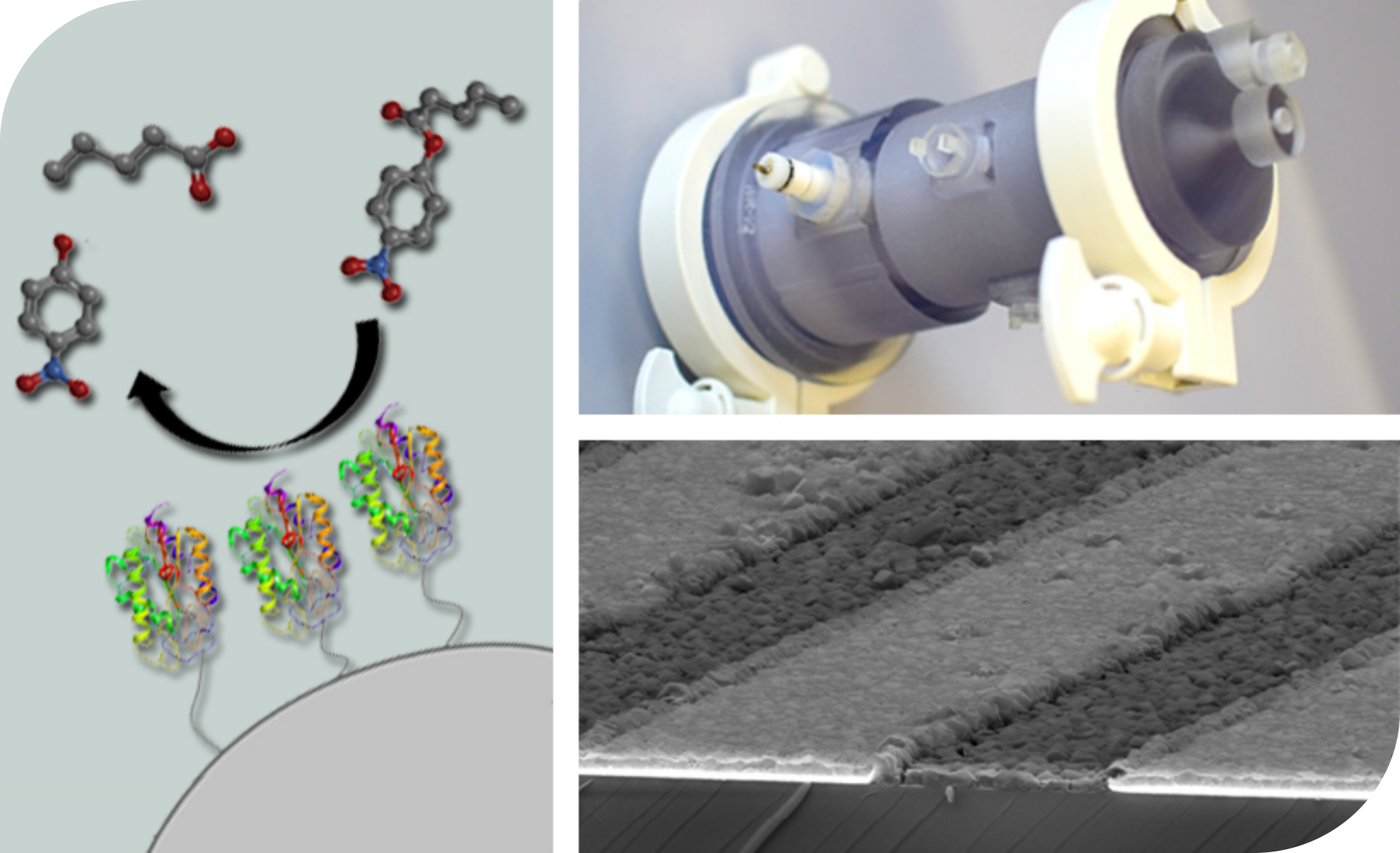Bioprocess and reactor development
Head of the working group
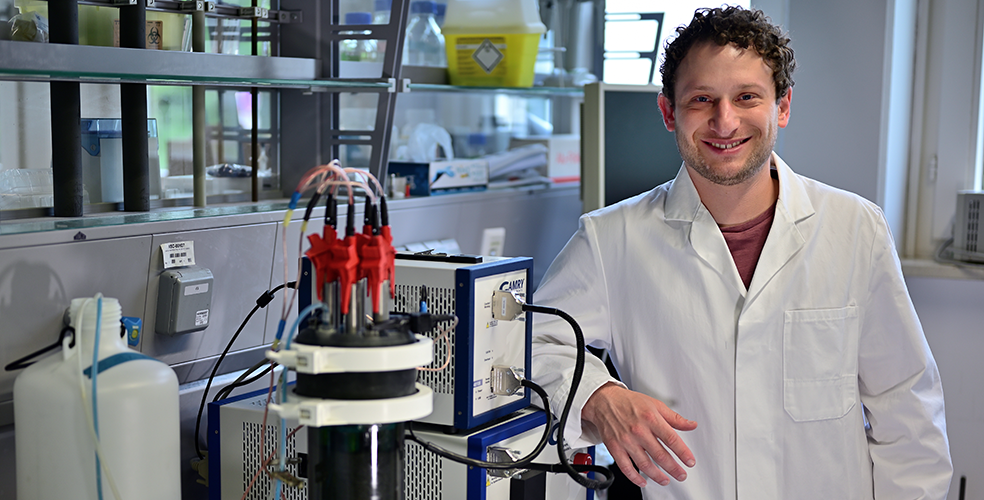
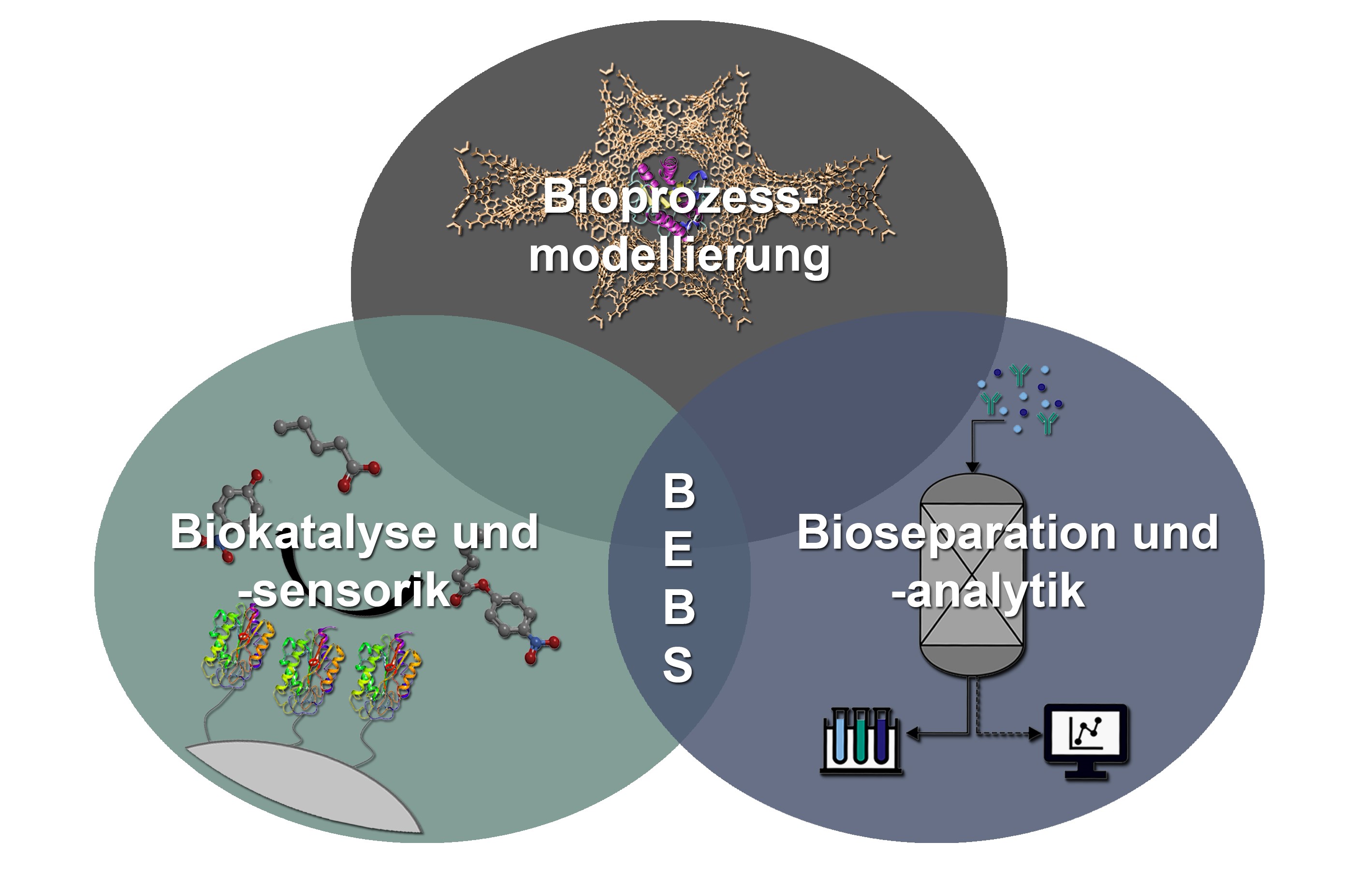
Theses
The Bioprocess Development and Modelling group is concerned with the simulation-based development of novel synthesis, separation and analytical processes in biotechnology. Current focus topics are enzyme reactors and electro-biotechnological processes, the development of selective and energy-efficient separation processes for molecules, cells and particles, as well as the use of additive manufacturing processes for novel (bio)analytical systems. Process development includes rapid prototyping using various 3D printing techniques as well as the generation of an in-depth process understanding through intensive use of various modeling and simulation tools. The modeling methods used range from molecular dynamics simulation, multiphysics finite element models, to digital twins of complete bioprocesses.
Main research topics of the working group Bioprocess Development and Reactor Development
Bioprocess Modeling
|
The Bioprocess Modelling group is concerned with the simulation of processes and materials used in biotechnology. Besides the simulative part, experimental data are generated as training sets for algorithms for the development of digital twins of chromatography materials or filtration systems. |
| Current projects: |
| Development of digital twins for polymer-based chromatography resins |
| Hierarchically structured, particulate biomaterials: Automated synthesis and characteristion, autonomous optimisation and application |
| Process intensification of electrochemical particle reactors for CO₂-conversion into biotechnologically usable carbon sources |
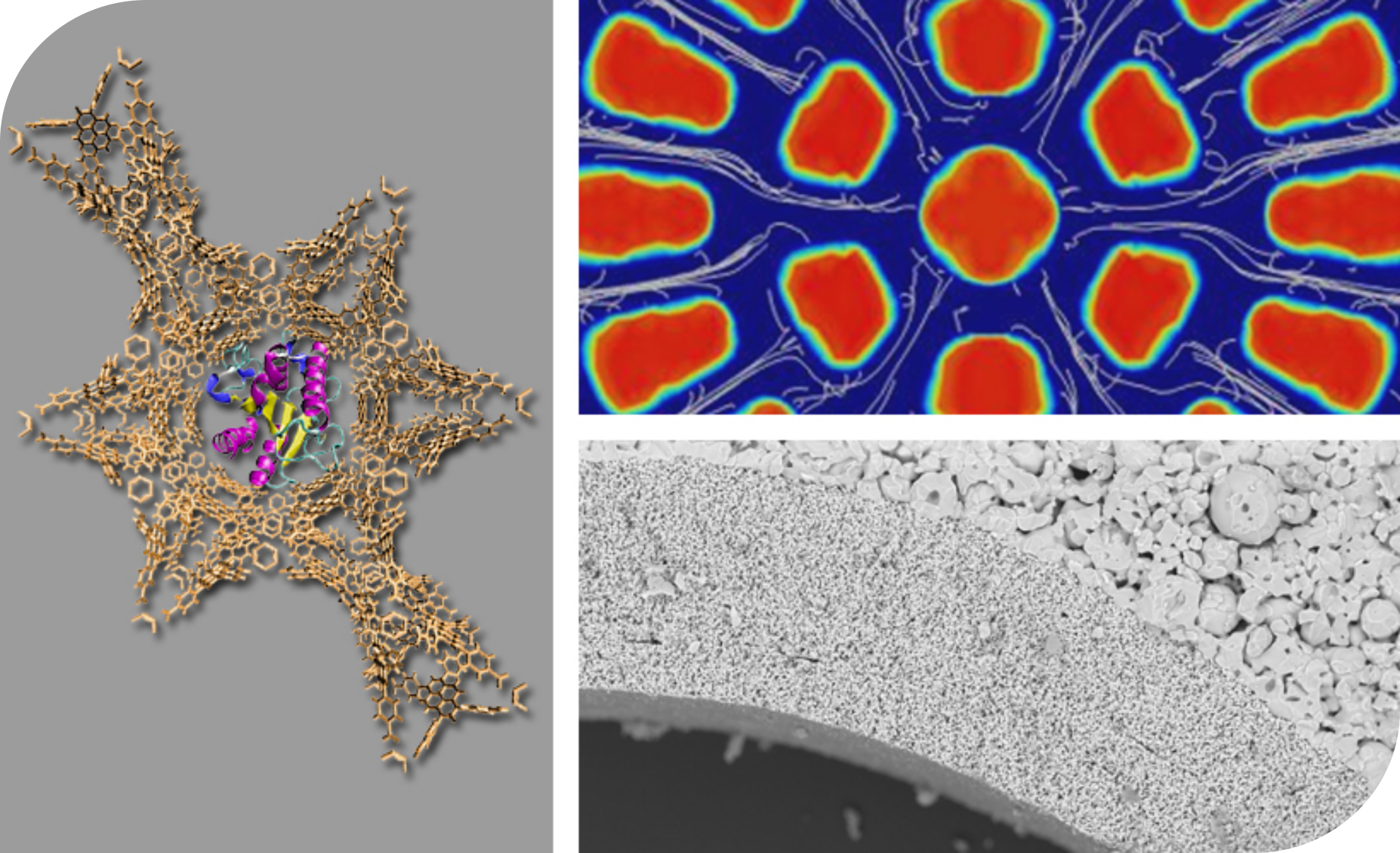
Bioseparation and analysis
| The Bioseparation and Analytics group is concerned with the development, production and characterization of tailor-made, novel separation processes for preparative and analytical applications. Different tools are used, such as multiphysics and process simulations, additive manufacturing techniques and new adsorption materials. |
| Current projects: |
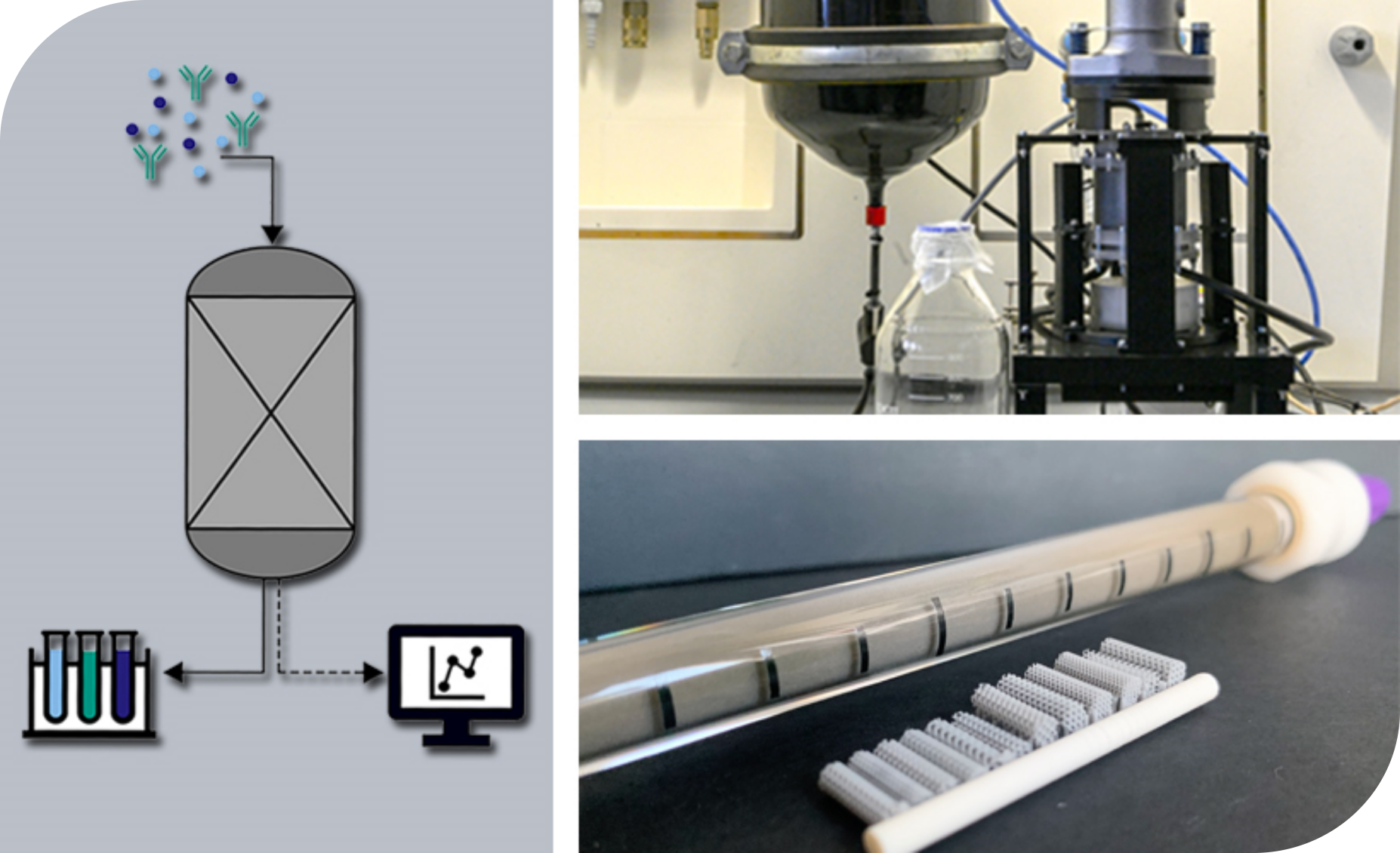
Bioreactors
| In the Biocatalysis and Sensor Technology group, enzymes (biocatalysts) are immobilized on carriers (magnetic particles/MOF) in order to use them in novel reactor systems. In addition, we work on the development of impedance-based sensor systems, with which the carrier material as well as its interaction with the corresponding catalyst can be investigated in more detail. |
| Current projects: |
| Magnetically assisted electrochemical fluidized bed reactor for electroenzymatic syntheses using a gas phase. |
